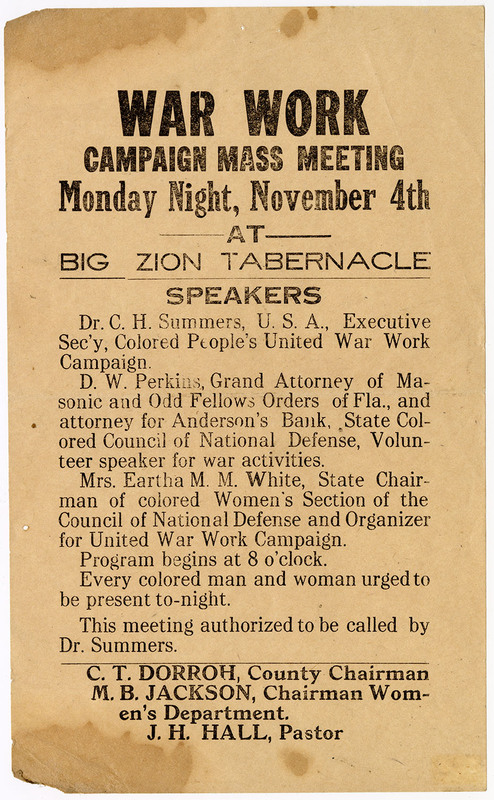Working within the System: Negotiation in Black Women’s Political Activism
The fight for civil rights would always be a political one, but black women were not always allowed to participate directly. However, as they gained more prominence in the public sphere through churches and clubs, these women could advocate for civil rights more directly. Some of their efforts followed a diplomatic approach, attempting to win full citizenship for black Americans through supporting existing institutions dominated by white Americans.
Black Women on the Homefront
The First World War created an opportunity for African Americans to demonstrate their patriotism at home and abroad. While black men could fight overseas, black women could lead on the Homefront. They could serve as examples of thrift and organize groups that would support the war financially. Some supported the War Work Campaign, a war donation drive led by several national organizations in November 1918. While they did not contribute directly to the main campaign, their donations went to the similarly branded version aimed at African Americans which was a partner to the main campaign. Eartha M. M. White, in her capacities as the state chairman of the Council of National Defense’s branch for black women, spoke at a mass meeting for the drive at a local church. Women were encouraged to attend to learn more about how they could support the campaign and the men they knew serving in the U.S. military. While White participated in organizing the campaign, the contributions of black women helped to fuel it.

